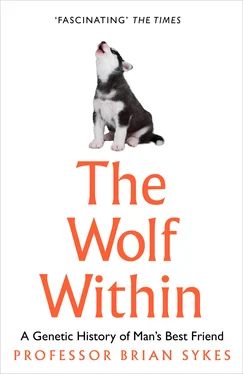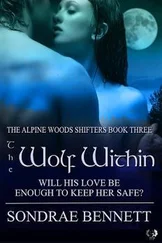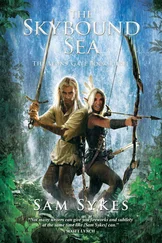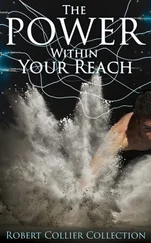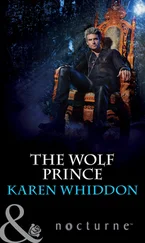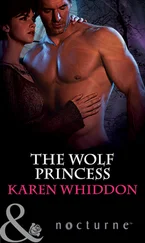By early March the days were getting longer, although not appreciably warmer, and Lupa knew it was time to make a start for the high ground. The wolf pack had survived the winter by feeding off the herds of reindeer and wild horse which overwintered on the delta. But first there was the business of mating. Lupa was only receptive to the alpha male for five days every year. That was enough for her to get pregnant once again. She wanted to be sure to reach her traditional denning site in the hills in good time for the birth of her cubs. Very early one morning, with the frost decorating the dried stems of last year’s reeds, she led her pack away from the delta and headed west for the mountains.
In past seasons Lupa had arrived in the gorge ahead of the Neanderthals, who had also spent the winter on lower ground. This year she was surprised to see humans were already living around the gorge when she arrived with the other wolves. She made her way to her usual birthing den in a small cave hidden behind a patch of eroded scree high up on the side of the gorge. Ten days before the cubs were due, she settled down and waited for the births. For the period of her confinement the alpha male ran the pack. All the wolves brought food to Lupa which they left outside her den.
In due course Lupa gave birth to four blind cubs. One, the weakest, died almost immediately, but the other three developed quickly. Their eyes opened at two weeks and a week later they were beginning to feed on regurgitated meat. The following week, Lupa led her pups outside the den for the first time where they played under her supervision. The other wolves who had kept Lupa supplied with meat during her confinement now began to do their share of babysitting, giving Lupa a well-deserved break.
The first thing she did was to walk to her favourite lookout at the edge of the gorge to see what the humans were up to. She could see a small group paddling in the river, overturning stones and occasionally plunging their hands into the icy water to pull out a crayfish. This is something the Neanderthals never did. But the biggest surprise was still to come. On her way back to the den she saw not far away on the plateau a group of humans who appeared to be hunting. The Neanderthals never came up to the top of the gorge. These strange new humans were the same slimmer version she had seen the year before. Unsure what to make of them, she kept low to the ground out of sight behind a clump of dwarf willow.
Over the rest of the summer Lupa and her pack saw more and more of the humans up on the plateau.
She saw them ambush a wild horse they had deliberately separated from the herd. They had it cornered in a patch of marshy ground below a low bluff where it became trapped in the mud. Two of the humans – there were six in all – climbed the bluff with spears in hand. While the others spread their arms and shouted to confine the horse and prevent it from escaping, the two on the bluff raised their spears and hurled them into the struggling animal. It shuddered and dropped to the ground. All six humans crowded round the stricken beast and drove their spears deep into its chest. Once it was dead they took out stone knives, opened the abdomen and shared the liver between them. They then butchered the rest of the carcass and made their way back down the gorge. Not all their hunts were as successful as this, and more than once over the summer Lupa watched as the exhausted humans made their way home empty-handed.
The first flurries of winter snow fell on the high plateau in August and the reindeer were once again on the move to lower ground. The first snows heralded the best month’s hunting of the year for the wolves. Calves born in May were now almost fully grown but were inexperienced. The wolves knew which routes the animals would take across the undulating plateau and planned to intercept them in the pockets of soggy ground that lay in their path. Lupa led her pack, now nine strong, towards the ambush zone, many kilometres from their home near the top of the gorge. But something was troubling her. She stopped and sniffed the air. There it was again, the same scent she had first encountered at the site where the humans had killed and butchered the wild horse a few weeks earlier. Not only was Lupa’s olfactory sense very acute, she was also able to remember smells for months or even years. She knew very well the pungent scent of the Neanderthals, but this was certainly different, still strong but a little sweeter. Scent always being her primary sense, from now on she would recognise the new humans using her nose rather than her eyes. She scanned the horizon. She could not see any humans. She led her pack onwards.
Suddenly from a small clump of birch trees about twenty metres away an enormous bull aurochs charged out, heading straight for Lupa. These giant beasts, the ancestors of domestic cattle, had very short tempers and were extremely aggressive towards wolves. Lone bulls like this one were worst of all. Wolves knew better than to take on an enraged aurochs. It would take a much bigger pack than Lupa’s to subdue and kill such a giant. Before she had time to organise the rest of the pack, the beast was on her. She just managed to dodge the deadly horns on the first pass and moved backwards out of range. Seeing her in trouble, the first instinct of the rest of the pack was to protect its leader. The alpha male rushed into the attack, attempting to sink his long canine teeth into the beast’s huge neck. With a flick of the bull’s head the wolf was skewered on the aurochs’s left horn. Another flick and the bloodied body was flung to the ground. The other wolves went to attack, still desperate to protect their leader. The thrashing bull caught one of this year’s cubs full in the chest with its back leg then turned and trampled the winded and mewling animal and left it dying on the moss. Lupa herself now joined in, knowing full well that if she was killed or injured the pack was finished.
Just then, two humans appeared downwind over the crest of a low hill. They had been tracking the aurochs. They had heard the commotion and now they saw the reason for it. Standing well back, they took up position and hurled their spears at the snorting bull. The sharpened flint tips found their mark. One spear struck the animal in the flank while another buried itself deep in the beast’s chest, its razor-sharp edge severing the aorta. Blood spurted from the wound and the beast fell to its knees. It lay there quivering and within a few minutes it was dead.
The two humans advanced on the carcass, knives at the ready. They looked up, expecting the wolves to retreat, but instead they held their ground and lay watching in silence. The hunters opened up the animal and removed the steaming entrails. They cut slices from the warm liver and began to eat. When they had taken their fill but before they started to butcher the carcass, the younger of the two hesitated. He had seen how wolves ran down their prey, following them for many kilometres until the animals, weak from exhaustion, could fend them off no longer. Once they were sure the death throes no longer put them in danger of serious injury, the wolves would engulf the dying animal, ripping at the exposed abdomen and disembowelling it. An idea was beginning to form in the mind of the hunter.
Reaching into the ribcage of the fallen aurochs, the younger man ripped out its still-beating heart and tossed it towards the wolves, much to the dismay of his older companion. Still the wolves stayed where they were, their amber eyes fixed on the humans. After a full five minutes Lupa was the first to move, gingerly advancing towards the offered heart. The other wolves watched in silence. Lupa sniffed at the heart, then opened her wide jaws and sliced off a chunk of the left ventricle and began to eat it. Still the others did nothing. After a further five minutes, with an almost imperceptible movement of her ears Lupa sent a silent signal to the rest of her pack. They advanced and tore the rest of the heart to shreds.
Читать дальше
